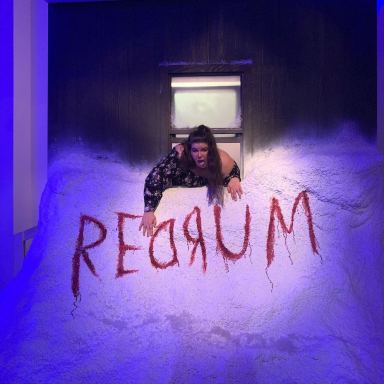19+ Famous Movies About Split Personalities
Movies about split personalities are featured in many famous thrillers and horror movies.

Having a split personality is officially known as “dissociative identity disorder.” It is diagnosed when one person has two or more personalities and has a mental “blackout” when transitioning between them.
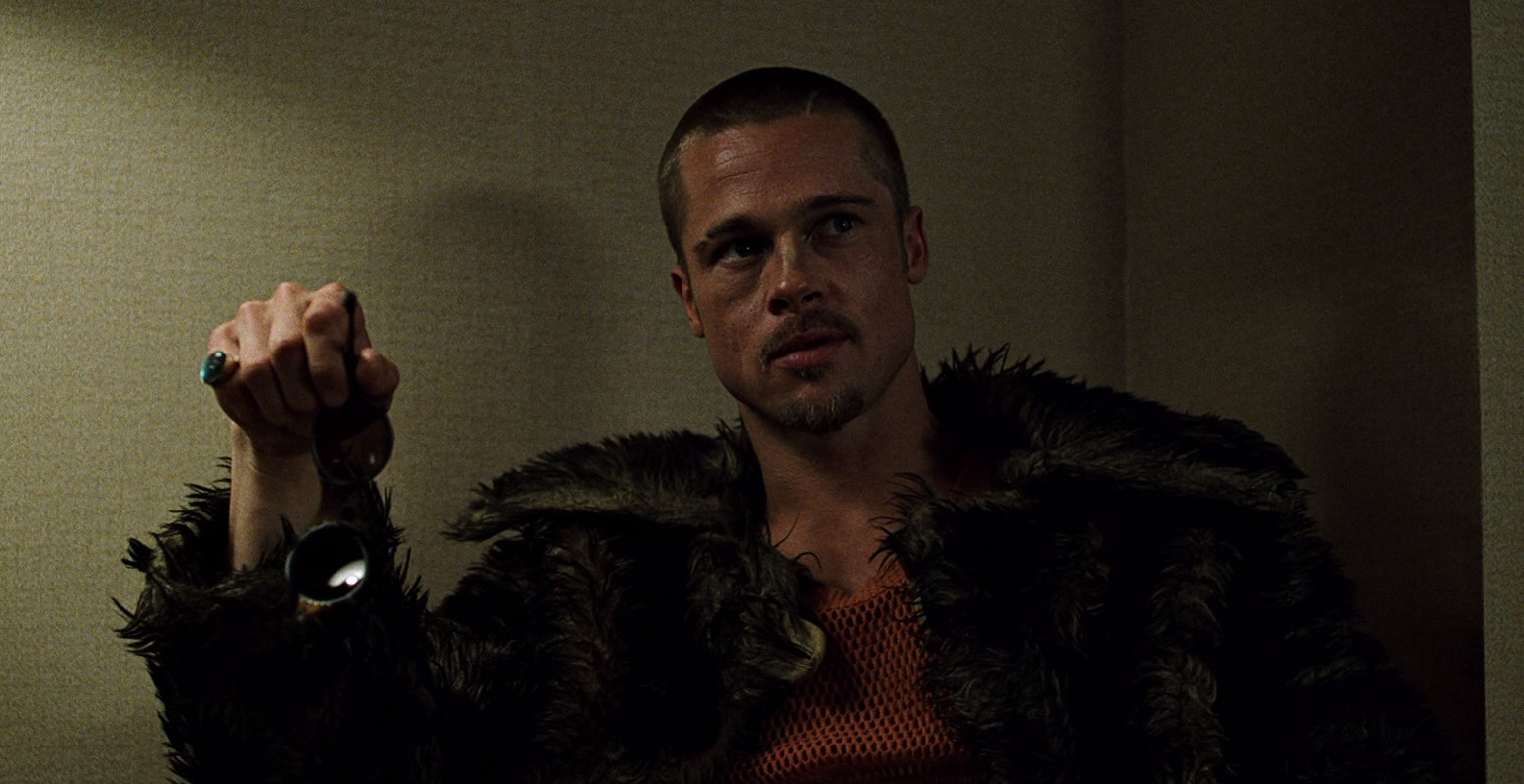
Because split personalities are so rare and misunderstood and were once thought to have been caused by demonic possession, they are fascinating enough to have become a movie trope going back at least as far as the 1940s. Although for dramatic effect, films often make the personality states as different as night and day—for example, the mild-mannered Dr. Jekyll is the complete opposite of the evil Mr. Hyde—in real life, the differences are much more subtle.
Here are some of the most enduring and famous films that deal with split personalities.
Dr. Jekyll and Mr. Hyde (1941)
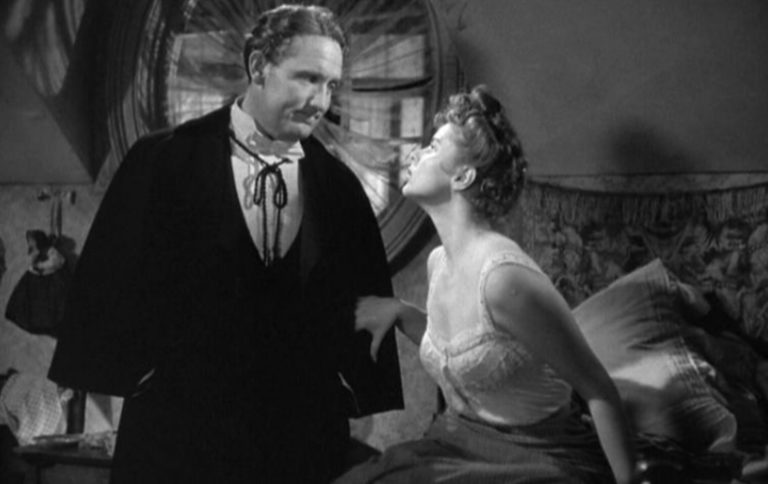
In this cinematic adaptation of Robert Louis Stevenson’s classic 1886 novel Strange Case of Dr Jekyll and Mr Hyde, Spencer Tracy stars in the dual-title roles. Henry Jekyll is a prominent London physician who is fascinated with the fact that all humans have the potential for both good and evil inside them, so he wonders whether he can develop a serum that rids a person of evil and isolates the good. He concocts a chemical compound that can conjure a person’s evil side by experimenting on animals such as guinea pigs and rabbits. When a potential human subject dies, Dr. Jekyll decides to take the potion himself and transforms into the bestial Mr. Hyde, a malevolent character who begins murdering the people around him. He also develops an antidote that can bring him back to the good and non-murderous Dr. Jekyll. Then, when triggered by anxiety and not taking the serum, he finds that he morphs into Mr. Hyde anyway.
The Three Faces of Eve (1957)
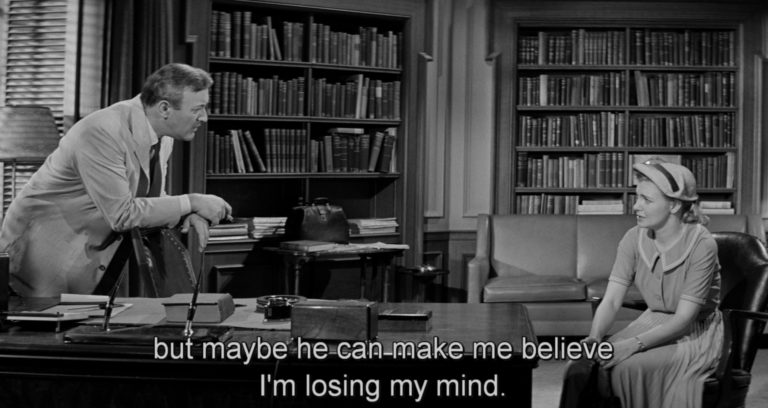
Released the same year as the bestselling book of the same name by two psychiatrists who based their tome on a case study of a patient named Chris Costner Sizemore, The Three Faces of Eve stars Joanne Woodward in all three title roles. Eve White is a quiet, obedient, and rather dull housewife and mother who suffers from blackouts and memory lapses. She is entirely unaware of her alter ego, Eve Black—who is a wild woman that enjoys dancing, drinking, and cheating on her husband. While Eve is undergoing psychotherapy, a third “face” emerges—that of “Jane,” who reveals that she endured childhood trauma when forced to kiss her grandmother’s corpse during an open-casket funeral.
Psycho (1960)
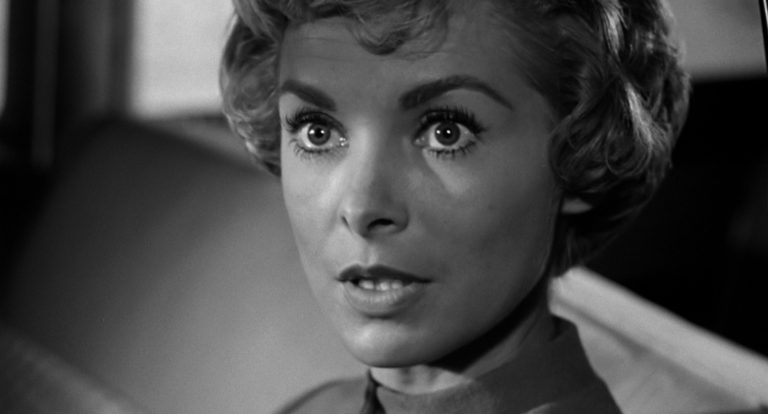
In this Hitchcock classic that is considered “the world’s first modern horror movie,” Anthony Perkins stars as Norman Bates, the gentle and socially awkward proprietor of the remote Bates Motel in the California desert. Norman purports to live with his hectoring mother, but he has a secret—he dresses and acts like his mother in order to split his guilt away into her body. His mother is actually dead, and Norman is a serial killer. The film has a misleading title—if Norman Bates were an actual psychopath, he would not feel guilty. But he feels strong guilt for his actions, which is why his personality splits in two, thus helping to temporarily assuage his self-loathing.
Sybil (1976)

Based on the bestselling fictionalized biography by Flora Rheta Schreiber about Shirley Ardell Mason, a real-life psychiatric patient who was treated for multiple personalities by an American psychiatrist named Cornelia Wilbur, Sybil was a TV miniseries lasting just over three hours. It starred Sally Field in the title role as an extremely troubled young substitute teacher whose condition is a result of extreme childhood abuse at the hands of her mother. Sybil allegedly had sixteen “alters,” i.e., alter egos, some of whom were male. Joanne Woodward plays the part of Sybil’s therapist who repeatedly saves her from suicide attempts while slowly concluding that Sybil’s disorder is the result of maternal abuse. Sybil was remade as a TV movie in 2007 starring Tammy Blanchard in the title role and Jessica Lange as her therapist.
Magic (1978)
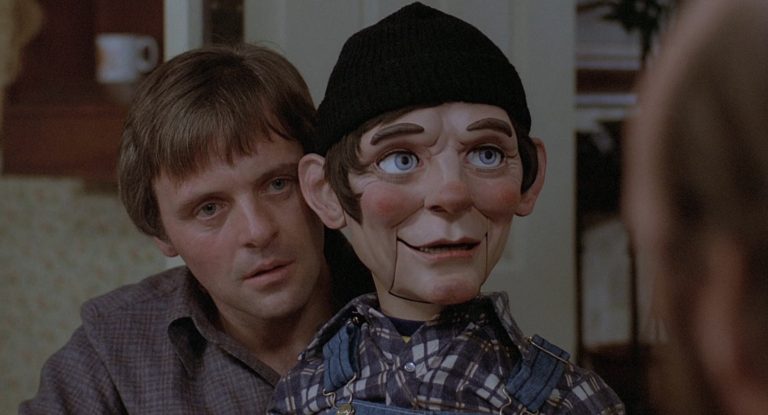
Sir Anthony Hopkins—who won an Oscar for his portrayal of the serial killer Hannibal Lecter in The Silence of the Lambs—portrays a magician’s assistant named Corky whose career falls flat after the death of the magician he’d assisted. His manager Ben (Burgess Meredith) encourages him to become a ventriloquist. Through the aid of a crazy-eyed dummy called “Fats,” Corky’s career begins to thrive, but then Corky finds himself being manipulated by “Fats,” not consciously aware that the dummy is merely a vessel onto which Corky is projecting his most sinister impulses. Seeking to escape the mental torment, Corky returns to his hometown and attempts to woo back his childhood sweetheart Peggy (Ann-Margret), who is now happily married. A string of murders ensues.
The Shining (1980)
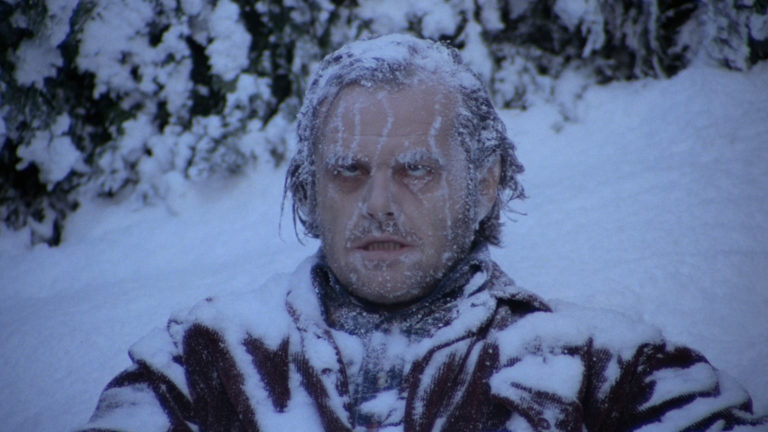
This horror classic based on the 1977 Stephen King novel was directed by Stanley Kubrick and stars Jack Nicholson and Shelley Duvall. Its title derives from the telepathic abilities that their five-year-old son Danny has, which he refers to as “the shining.” During a savagely bitter winter in a remote and isolated mountain hotel, Danny experiences several terrifying visions and converses with a supernatural being that he calls “Tony” but which is actually a split part of Danny’s personality. In 2013, King wrote a sequel called Doctor Sleep featuring Danny as the main character; it was made into a film in 2019.
Primal Fear (1996)
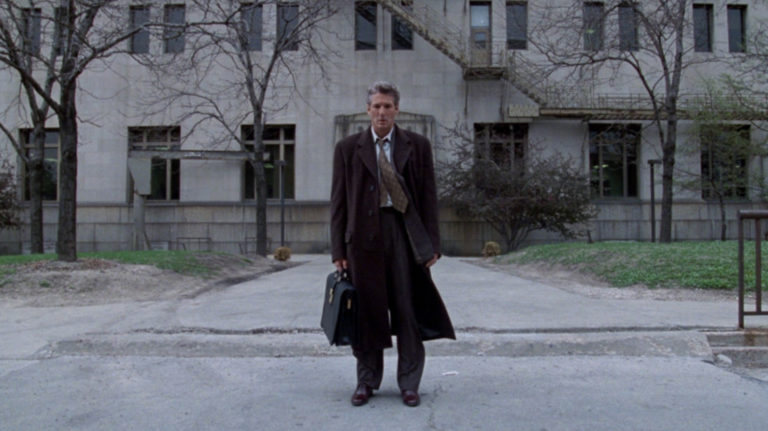
When a seemingly simpleminded altar boy from Kentucky named Aaron Stampler (Edward Norton) is accused of brutally murdering a Chicago Archibishop, retired lawyer Martin Vail (Richard Gere) comes out of retirement to take on the case pro bono because it presents a unique challenge—public sympathy and all evidence point to Aaron being guilty, but Vail suspects that there’s more than meets the eye. Complicating matters is that the case’s prosecutor is a still bitter ex-lover of Vail’s and the fact that midway through the trial, Vail has reason to believe that Stampler suffers from dissociative identity disorder and that a violent alter ego named “Roy” is responsible for the killing. There is also evidence that Stampler was molested by the Archbishop, which would make him a more sympathetic character to the jury but would be bad for the case, because it would provide Aaron with a motive. But what if “Aaron” is actually an alter ego and “Roy” is the real killer? Or what if it’s all an act by a sadistic murderer?
Fight Club (1999)
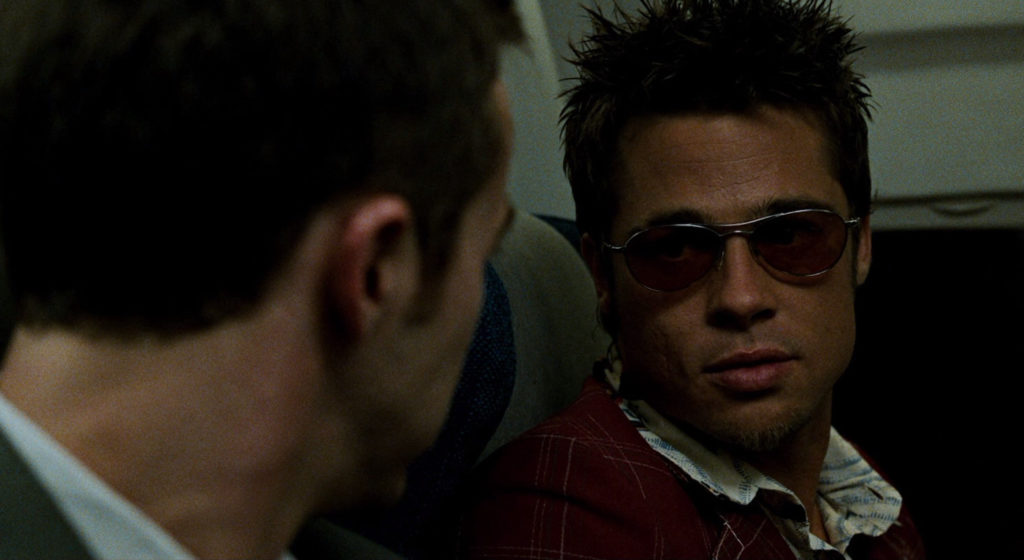
Fight Club, directed by David Fincher, and based on the novel of the same name by Chuck Palahniuk features one of the most ingrained names in pop culture when it comes to split personalities — Tyler Durden. Who is Tyler Durden? That is the question that haunts Fight Club and the source of a liberating and violent energy that pulls the plot of the movie. Suffice it to say, the split personality within Fight Club is the result of a man losing his mind to insomnia and the emptiness of his consumer life.
Me, Myself & Irene (2000)

In this dark comedy by the Farrelly Brothers, Jim Carrey stars as a milquetoast and unassertive Rhode Island State Trooper named Charlie who is so nice to people that he constantly gets exploited and abused. After years of pent-up rage, Charlie diverts the abuse into a second personality named Hank—a manly, sneering, unfeeling character reminiscent of Clint Eastwood. After Charlie bungles an arrest and accidentally kills some people, his boss assigns him to escort a woman named Irene (Renee Zellweger) from Rhode Island to New York to escape the wrath of her mob-connected ex. Irene finds Charlie to be unattractive like all women do, but she finds his alter ego Hank to be sexy. Problem is, Hank can’t control his aggressiveness, which is also a turnoff to Irene. Will Charlie be able to incorporate Hank safely into his personality and win Irene’s everlasting affection?
Identity (2003)
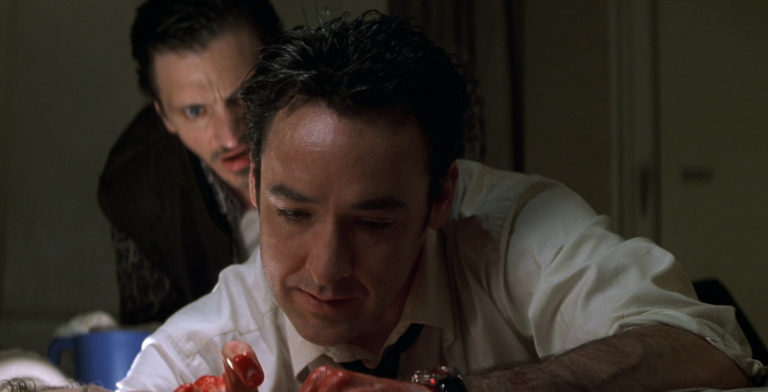
Malcolm Rivers (Pruitt Taylor Vince) is a sadistic serial killer about to be convicted of murder and likely sentenced to the death penalty. In an alternate but concurrent plot, ten strangers get stranded at a remote Nevada motel during a freak rainstorm when the road on either side of the motel is flooded. There is no food and no way of contacting the outside world. Then, one by one, the motel’s tenants start getting murdered. Then we realize that (tap to reveal spoiler) the motel situation is all in the murderer’s head, and his attorney successfully pleads insanity for his client as a result of him having several personalities. The only remaining task will be for the lawyer to transport his client to the asylum without getting killed.
Hide and Seek (2005)

A Manhattan psychiatrist and his daughter move to upstate New York after his wife’s suicide. His daughter, Emily, has PTSD from the tragedy and the move seems to make her worse. Soon she has a new “imaginary” friend named Charlie whose aim is to team up with Emily to terrorize her father. The “split personality” in Hide and Seek is caused by actual dissociative identity disorder, the reveal of which happens in a twist ending.
The Machinist (2004)
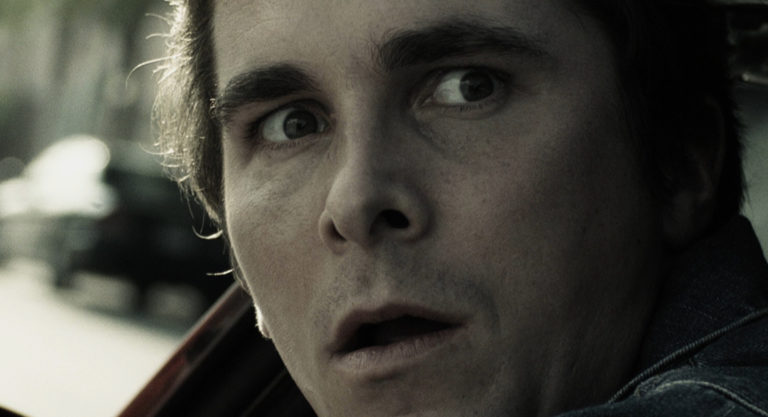
In a classic example of method acting, Christian Bale lost 62 pounds to play the role of Trevor Reznik, the titular factory machinist who is withering away because he hasn’t slept for a full year. On the job, Trevor’s coworkers poke fun at him for his weight loss and the fact that he no longer seems “all there”—his primary tormentor is a beefy bald man named Ivan, but no one else at the factory, including Trevor’s boss, will acknowledge that Ivan even exists. Could it be that Trevor has lost weight and invented an entire fantasy world to divert his own guilt for accidentally killing two people with his car a year ago?
Shutter Island (2010)
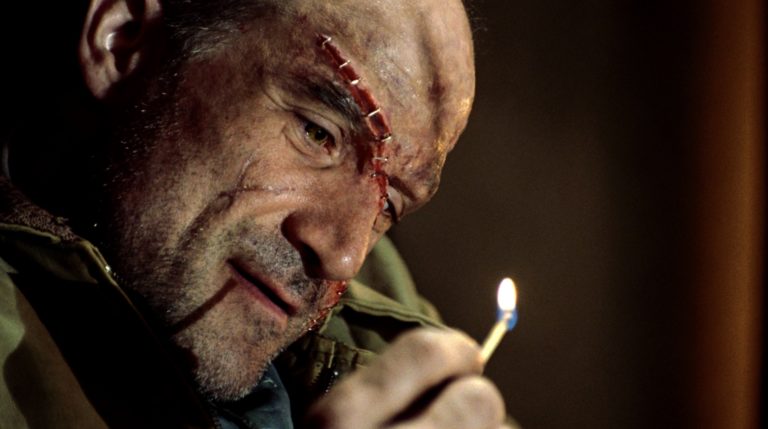
Until it was surpassed by 2013’s The Wolf of Wall Street, the psychological thriller Shutter Island was legendary director Martin Scorsese’s highest-grossing film of all time. Set in the early 1950s, it stars Leonardo DiCaprio as Teddy Daniels, a police detective and World War II veteran who is sent out to a fortressed island asylum to investigate a female patient’s disappearance. Once at the island, a vicious storm causes flooding at the mental hospital and cuts off all communication with the mainland. As Daniels finds himself not only trapped there, but also held captive by the administrators, he begins to feel he is on the brink of breaking a huge case about administrative corruption and cruel psychiatric experimentation on the island. But what if “Teddy Daniels” is only the alter ego of a mental patient who was severely traumatized after liberating a concentration camp during World War II?
Black Swan (2010)
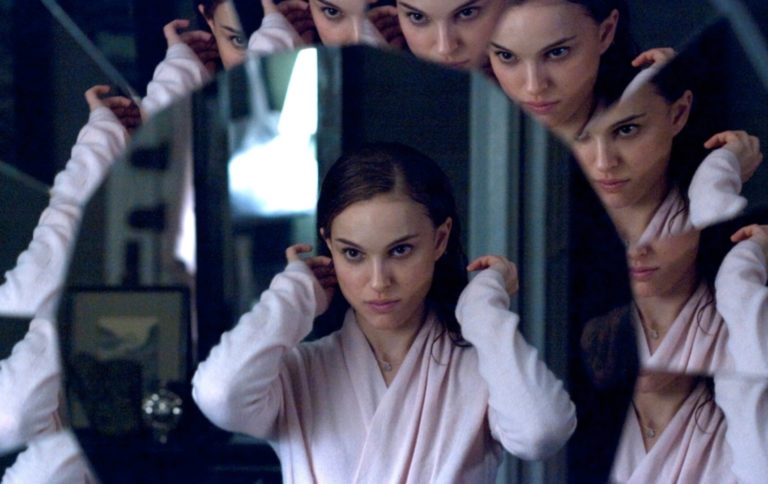
In this psychological thriller directed by Darren Aronofsky, Natalie Portman won an Oscar for Best Actress for her role as Nina, a ballerina who is thrilled to receive the role of the White Swan in a production of Tchaikovsky’s ballet Swan Lake. But suddenly she is upstaged by Lily (Mila Kunis), a Ukrainian-born dancer who lands the role of the Black Swan. What initially seems like a rivalry becomes a strange friendship as the two put aside their differences and in one hallucinatory scene appear to have sex. But what if Lily is merely one of Nina’s alternate identities?
Frankie & Alice (2010)
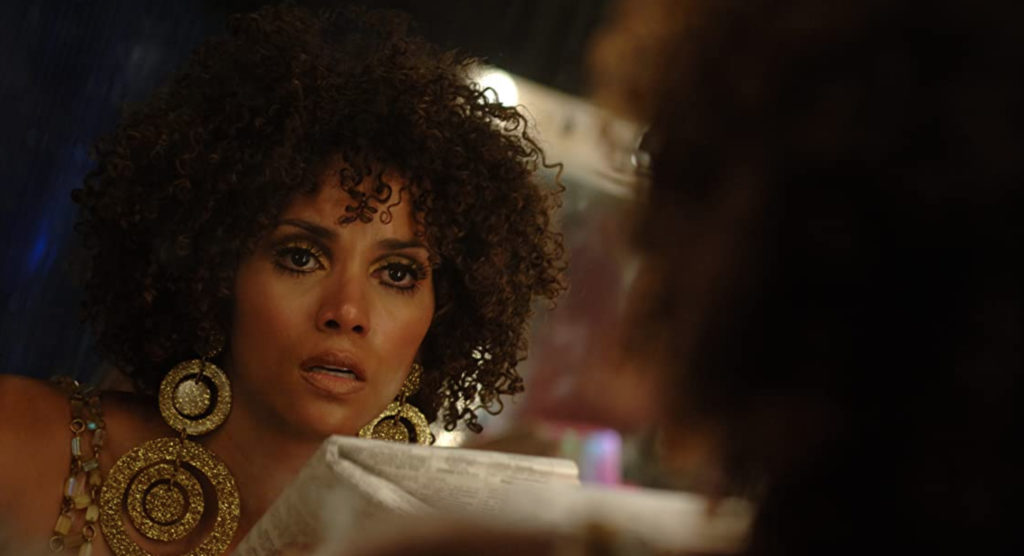
In this film set in Georgia during the 1950s, Halle Berry received a Golden Globe nomination for portraying a stripper with three personalities—one is “Frankie,” a 32-year-old black female with above-average intelligence. Another is “Alice,” a racist Southern white woman. The third is “Genius,” a prepubescent black girl with an IQ of 156. To avoid an imminent mental breakdown, Frankie works with a psychotherapist (Dr. Oz) to reconcile her personalities and thereby avert disaster.
Split (2017)
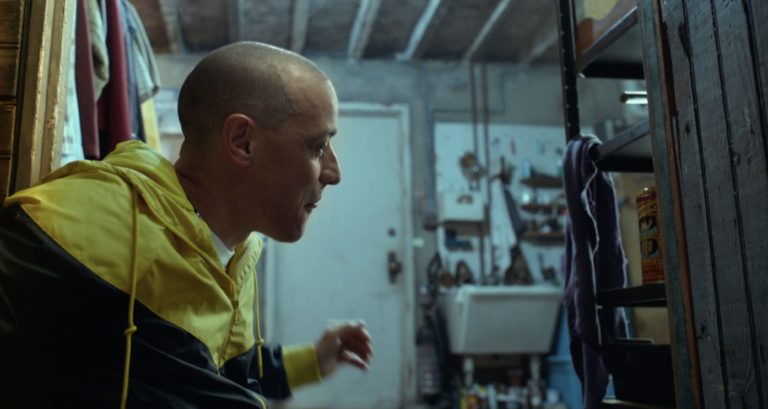
This is the second in the “Unbreakable” film trilogy—the first was 2000’s Unbreakable, and the third was 2019’s Glass. James McAvoy stars as Kevin Wendell Crumb, a man whose psychotherapist diagnosed him with 23 split personalities. One day, one of his personalities kidnaps three teenage girls as they’re leaving a mall birthday party and keeps them locked in his basement, tormenting them with his array of different personas. When a super-sadistic 24th personality named “The Beast” begins to emerge, the girls must find a way to escape or face certain death.
Glass (2019)

Security guard Kevin Dunn (Bruce Willis) returns from 2000’s Unbreakable and decides to use his self-proclaimed supernatural powers—expressed through an alter ego he calls “The Overseer”—to subdue Kevin Wendell Crumb (James McAvoy), the villain from Split. Dunn finds himself confined in a mental institution alongside Crumb and a wheelchair-bound genius named Elijah Price (Samuel L. Jackson), who is also returning from Unbreakable. All three men are forced to undergo analysis by a female psychiatrist who doubts that any of them have supernatural abilities.
Other Split Personality Movies
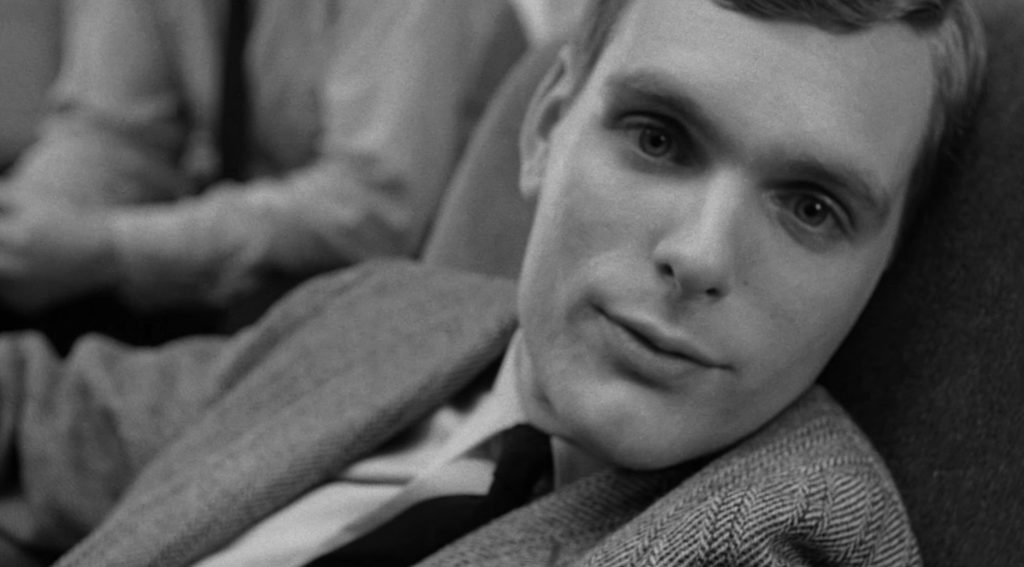
- David and Lisa (1962) David is a young man in a mental asylum who falls in love with Lisa (Janet Margolin), a girl who suffers from dissociative identity disorder.
- Voices Within: The Lives of Truddi Chase (1990) Shelley Long stars in this real-life story of a woman with multiple personalities in this TV movie.
- Never Talk to Strangers (1995) Rebecca de Mornay plays a criminologist who suffers from multiple personalities due to severe childhood abuse.
- A Tale of Two Sisters (2003) in this Korean production, a woman’s sister and abusive stepmother turn out to be merely other manifestations of her own dissociative personality.
- Secret Window (2004) in this movie based on a Stephen King story, mystery writer Mort Rainey (Johnny Depp) is a law-abiding man who is tormented by a malevolent stalker named Shooter (John Turturro), who is actually a person who lives inside Mort’s mind.
- Dorothy Mills (2008) after a troubled girl tries to kill an infant, a female therapist attempts to get the to the root of her dissociative identity disorder.
- The Ward (2010) Amber Heard stars as a woman who was kidnapped and chained in a basement at age 11 and developed multiple personalities to deal with the trauma.
- Waking Madison (2011) after attempting to kill herself, a woman locks herself into her apartment for a month and tries to cure her dissociative identity disorder by talking into a camera.
- 6 Souls (2013) Julianne Moore plays a psychiatrist who places herself in danger by attempting to treat a young man with multiple personalities.
- Jonathan (2018) two “brothers” who inhabit the same body face a crisis when both of them fall in love with the same woman.
